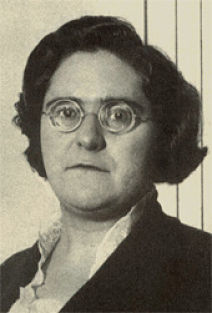A Quote by Che Guevara
Guerrilla warfare is used by the side which is supported by a majority but which possesses a much smaller number of arms for use in defense against oppression.
Related Quotes
I certainly wouldn't say that we loved the arms race. Trillions of dollars were used to stoke it. For our economy, which was smaller in size than the American economy, it was a burden. But one cannot agree with the statement that the arms race played the key role in the collapse of the Soviet Union.
The majority never has right on its side. Never, I say! That is one of these social lies against which an independent, intelligent men must wage war. Who is it that constitute the majority of the population in a country? Is it the clever folk, or the stupid? I don't imagine you will dispute the fact that at present the stupid people are in an absolutely overwhelming majority all the world over.
Why does the guerrilla fighter fight? We must come to the inevitable conclusion that the guerrilla fighter is a social reformer, that he takes up arms responding to the angry protest of the people against their oppressors, and that he fights in order to change the social system that keeps all his unarmed brothers in ignominy and misery.
Certainly one of the chief guarantees of freedom under any government, no matter how popular and respected, is the right of citizens to keep and bear arms. This is not to say that firearms should not be very carefully used and that definite safety rules of precaution should not be taught and enforced. But the right of citizens to bear arms is just one more guarantee against arbitrary government, and one more safeguard against tyranny which now appears remote in America, but which historically has proved to be always possible.
LeBron doesn't have any weaknesses, or he doesn't have a glaring weakness. So you've got to pick up on the smaller things to try to make him uncomfortable. Like knowing which side he likes to shoot threes off the dribble, which side he likes to drive. One side he'll drive left more often, and the other side he'll drive right more often.
What bin Laden had hoped to achieve in Afghanistan in the post-9/11 period, which was to drag the United States into a protracted guerrilla war like the one he had fought against the Soviets, never happened. Instead, that protracted guerrilla war is now playing out in Iraq, in the heart of the Middle East.









































